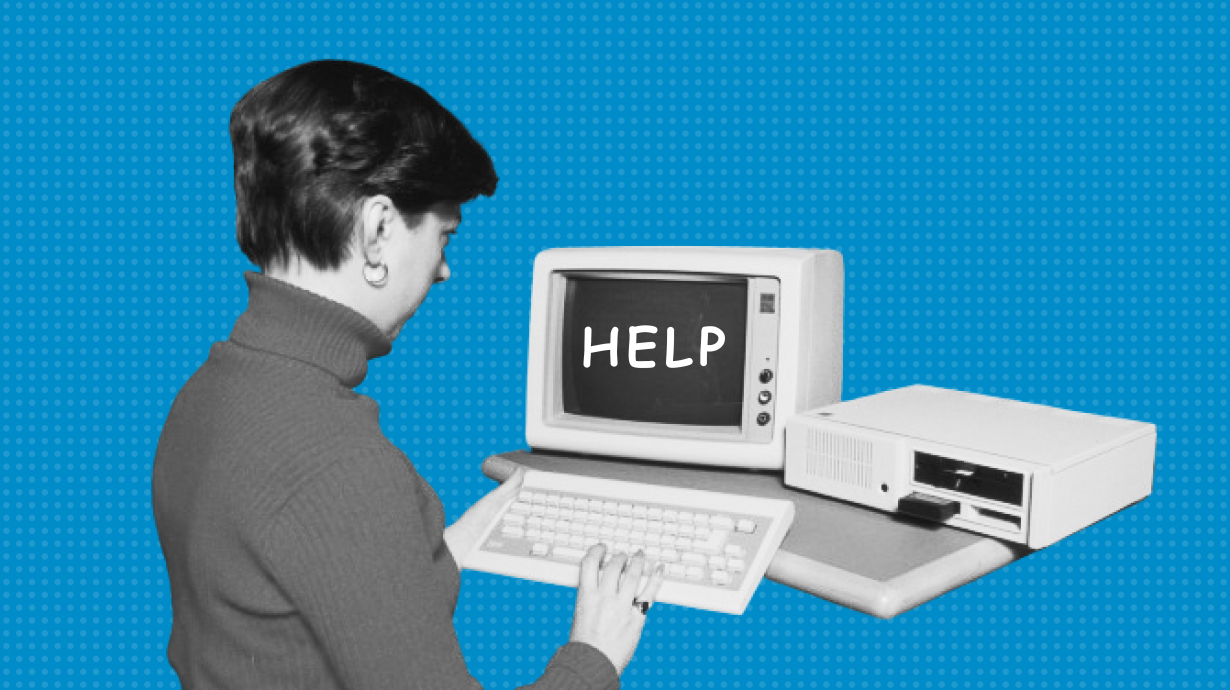At this very moment a global shift in the sphere of intellectual work is happening. Due to isolation measures related to the Covid-19 pandemic more and more people have to work from their homes. And we truly believe, when the isolation is over, many of them will not be willing to get back on-site.
However, to get a taste for remote work you should follow certain rules and be able to eliminate risks and avoid pitfalls. And right away we will share with you some tips and tricks for efficient and comfortable remote work.
Arrange your workspace
You need a nice and neat table and a chair. Avoid clutter since it can be distractful. Clean your workspace regularly. Because even crumbs left over from your recent snack can catch your eye and deconcentrate you. And that's not what we are aiming at, right?
Some prefer to work not at the desk but on the couch or in a chair with a laptop on their knees but:
- this may be harmful to your back;
-
this, in my opinion, will do only for routine tasks that don't require a long attention span.
Ideally, there should be two workplaces: a sitting and a standing one. So you could transition where you work: from your desk to a shelf or a window sill and back to the desk (that’s what I prefer doing). You can also buy an adjustable height desk (like this one from IKEA).
In a perfect world we would all have a separate workroom. But this is the luxury not everyone can afford. A good alternative is a dedicated workspace, a room where no one else is allowed to enter while you are at work. However, if you live in a one-room apartment that’s also not your option. You can try working in the kitchen or arrange a workspace on the balcony.
Take a break
Stand up, give yourself a stretch, take a walk in your apartment. It will be even better if you go for a walk outside. And while you’re away, air the room you work in.
Keep your breaks scheduled (at least for starters) for self-discipline. Because one of the major pitfalls of remote work is to relax too much and disturb your workflow.
Set up a routine
We’ve been surrounded by daily routines since childhood: to wash and weigh oneself in the morning, to brush one's teeth after meals and to read a book in bed before going to sleep. All these recurring actions serve as certain indicators that allow us to organize our life.
If you’re used to working on-site and now you are going to work remotely (because of the coronavirus or some other reason) try to take this office routine with you into new circumstances.
Choose the right soundtrack for your work
It's ok to work in headphones. At home, just like in the office, they help to block out the surrounding noise and not disturb others. Listen to music if you work better while listening to it (for some death metal will do, some will like ambient better). If you need complete silence try noise canceling headphones.
If your work requires intensive intellectual work try to leave out everything superfluous, e.g. youtube, tv series, podcasts - all the distracting things.
Keep working hours
One of the benefits of remote work is establishing your own working schedule. The main thing is to settle this with your employer and family. You need to define the time during which no one will bother you, especially over minor matters.
We’re used to a nine-to-five working schedule. Remember, though, when planning your work time and load, that, in fact, people are capable of working efficiently not more than 5-6 hours a day (with rare exceptions). You'd better not promise the employer that you’ll work nine-to-five. You will not. So why lie?
Be honest with your coworkers
You and your colleagues, among other things, should have a clear view of the work progress. Without it no one will be able to plan their work properly.
Track your tasks and time
One of the key points in any work is to see one's workload clearly at any given time and be able to keep track of your tasks and present the results to your manager and the team. And it is crucial when working remotely because the manager's control becomes weaker at this point.
The way out of this is to keep the tasks in a task management system and track the work you do within these tasks. Proper management of this process helps to impose discipline and achieve better results.
There is a plethora of task management tools. If you’re not in the mood to dive deep into that, you can simply write your tasks down a notepad and cross them out as you progress.
If you want something more serious try kanban methodology. It consists of cards with tasks on them arranged in columns and placed on a board. As the tasks are being worked on, you drag cards from one column into another. There can be a number of columns depending on the complexity of the workflow. The simplest set: stories, to do, in process, done. All of this can be done on an actual board (magnetic, cork, etc.) or with handy services like WEEEK, Trello, Asana, etc.
It’s important to track the time you spend on the tasks as well. There are lots of time management techniques (e.g. Pomodoro method, etc.) and applications (e.g. Toggl, Harvest, etc).
Report regularly
If you track your work and time, making reports will not be a problem. Short weekly reports are mutually beneficial for you and your manager. The latter can keep track of your work dynamics and efficiency. And you’re encouraged to do more.
Do not distract or let yourself be distracted
The office is the land of eternal interruption. Colleagues are talking, somebody is constantly coming up to you and literally everything is a distraction. Working from home makes it simpler to eliminate distractions and make work more focused.
Agree with your coworkers not to bother each other unless necessary. The same thing goes for the family members. Unless your job requires you to constantly be on call (sales manager, tech support, etc.), agree with your colleagues on the time you will be reachable.
Try not to make phone calls
Use messaging when it’s possible. Calls (especially phone calls) are for emergencies. Forget about voice messages as well. It’s considered bad manners in business correspondence.
Keep it in mind that it may take the recipient time to answer your message or email. It's ok to wait 40-60 minutes for the response.
If you still have to call someone, arrange it beforehand, at least one hour prior to the call. The right away calls are for the life-and-death situations only.
Carry out all the significant correspondence by email
Email is one of the oldest, yet still widespread means of online communication. When it comes to business correspondence, emails have two major advantages:
— compared to messengers, you’re supposed to write well-structured and informative letters so the other party will not need to squeeze information out of you;
— messages will be stored with both correspondents and it’ll be impossible to cover up one's traces (unlike Telegram with its deletable messages).
Suppose that communication via email is not an option (what if) then use a messenger and preferably not the one you use for chatting with friends and family. It is great if your company has a corporate messenger. And if it hasn't, use a separate account of the messenger of your choice for business communication. Usually the choice of a messenger depends on the team you work in. If all your colleagues use Skype (unfortunately, it still happens) you are not going to escape this fate either. Our choice are:
— Telegram and Discord for messaging and voice calls,
— Zoom for video conferencing.
Keep records
It's a good rule to follow for both the remote and office work. Write down what you have agreed on as a result of a discussion with your manager or a colleague and repeat it in the correspondence to avoid future misunderstandings.
If you are sick let yourself be sick
Don't work if you're sick. By doing this you're giving your colleagues false hope that the work will be done when you are unable to get it done.
So, again, be honest with your coworkers and yourself. Get better and then get to work.
Do not work on weekends
Weekends are for relaxing, doing chores and spending time with family.
If you have to work on weekends because you don't have enough time on weekdays then you have to improve your time-management skills.
If your employer forces you to work outside your office hours but isn't willing to pay overtime, find another job.
Be honest with your family
Explain to them that you can't be distracted even for a minute when you are at work. You won't be able to help with any chores or discuss household problems. You are at work. Even though physically you are at home.
Try not to bother people you live with
Your family has to compromise as well, for you to work at home peacefully. Simply don't call a client when your wife or husband is trying to put the child to sleep.
Draw the line between work and home
Perhaps, it's the most important advice about remote work. Especially when it comes to children. It's much easier to explain to an adult that you should not be worried than it is to a child. So, if needed, it's better to spend a couple of decent hours with the child, instead of constantly getting distracted and not being able to do your job at all.
Working from home is awesome. However, there's a risk of turning into a total homebody. To avoid this, try to socialize more: go out, meet friends, go to the movies, cafes, exhibitions. Though, of course, not before the pandemic passes. So, meanwhile, keep socializing at least online.


















